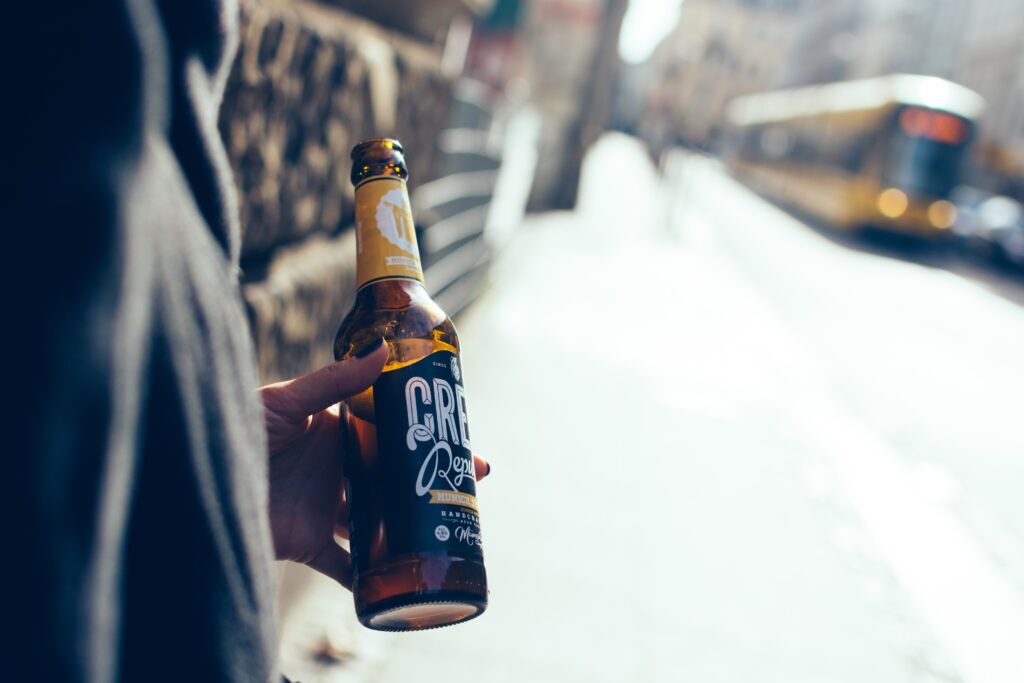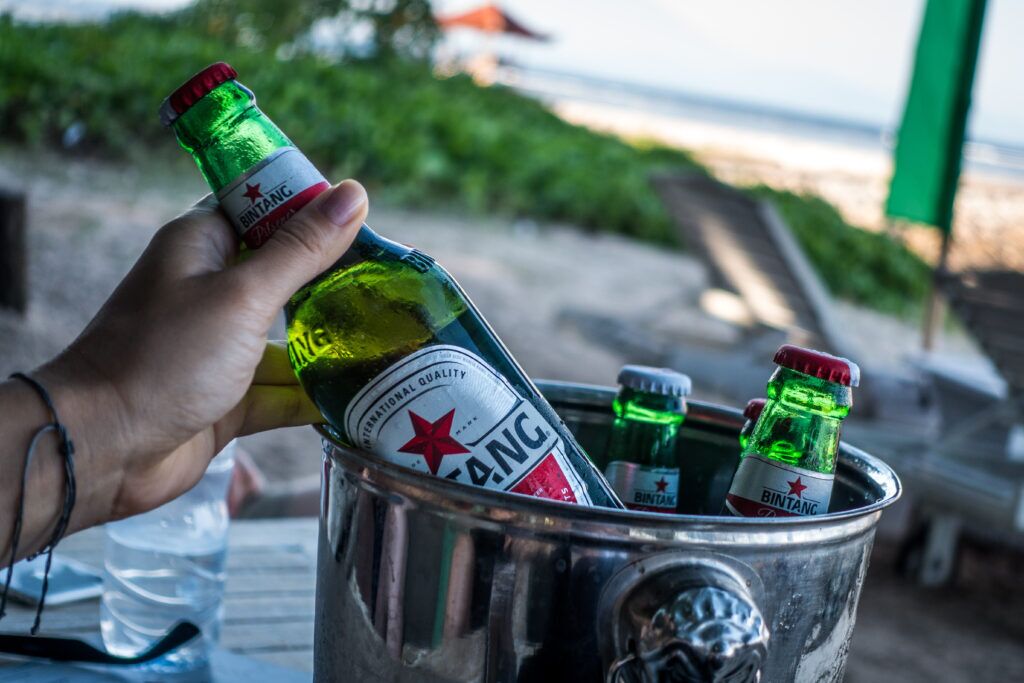Alcohol abuse: Worried? Here are the facts! Discover the reality about drinking alcohol and its impacts. Be informed and make wise choices! Don’t fall for the myths. Learn to prevent it too. Make it your priority!
Understanding alcoholism
Alcoholism is a serious issue that impacts millions around the world. To better grasp it, let’s differentiate myth from fact. Here’s what we know:
- Myth: Alcoholics are weak-willed.
- Fact: It’s an illness that changes brain chemistry and affects decision-making.
- Myth: Only big drinkers suffer from alcoholism.
- Fact: It can affect anyone, regardless of how often they drink.
- Myth: Giving up alcohol is easy.
- Fact: It can be hazardous and needs professional help.
If you or somebody you know has an alcohol problem, it’s important to seek help from medical experts, support groups, and treatment centers. Recovering is a process and there’s no universal answer. With the right guidance, however, beating alcoholism is achievable.
Here’s one more fact: In 2019, the National Institute on Alcohol Abuse and Alcoholism reported that 14.5 million adults (18+) had alcohol use disorder.
If you need more info or help with alcoholism, visit the NIAAA website for instructions and resources.
Differentiating between myths and facts
It’s vital to have the right information about alcohol misuse. Binge drinking regularly raises the risk of alcohol reliance, liver damage, heart sickness, and other health worries. Coffee or a cold shower won’t sober someone up – only time can do that. Alcohol is a depressant which may even cause a person to faint or die when taken in high doses.
Knowing these facts and myths lets you make informed choices about alcohol consumption. And if needed, seeking professional help is a must. Therefore, asking questions and gaining accurate information about alcohol abuse is highly recommended.

Importance of dispelling myths surrounding alcoholism
Dispelling myths about alcoholism is essential for tackling alcohol abuse and helping those it affects. Common misconceptions, such as only impacting certain demographics, being a moral failing, or being easy to quit, are false. The truth is that alcoholism can affect anyone, regardless of their socio-economic status. It is a complex illness requiring medical attention, counseling, and support to overcome.
Knowing the facts about alcohol abuse is key in enabling individuals to recover and reducing the stigma associated with it. By getting rid of these myths with facts, we can help those affected to have a healthier relationship with alcohol and seek the right help.
Myth 1: I Do Not Have a Problem Because I Can Hold My Liquor
Many people believe that they do not have an issue with alcohol because they can hold their liquor. However, this is a common myth that traps people into thinking that they do not have a problem when they actually do. In this section, we will explore why holding your liquor is not a reliable indicator of alcohol abuse. We will delve into the reality of alcoholism and provide insight into the differences between myths and facts about alcoholism. Additionally, we will examine the importance of dispelling myths surrounding alcoholism and how this can help people gain a better understanding of the problem and seek help if needed.
Debunking the myth
This myth–‘I don’t have a problem because I can hold my liquor‘–is wrong. It’s important to know that even if you can drink a lot, drinking too much can harm your health.
For example, drinking too much can give you liver disease, high blood pressure, and depression.
Plus, alcohol addiction is a serious disease that can happen to anyone, no matter how well they can hold their drink. It takes courage to get help for alcohol abuse.
It’s important to know the signs and risks of alcohol abuse, so you can take care of yourself or someone you love.
Explaining the dangers of high tolerance
Having a high tolerance for alcohol does not mean you’re safe. It can be dangerous, leading to health problems like liver disease, weakened immunity and alcohol poisoning. A high tolerance can also cause heavy drinking, resulting in aggression, poor judgement and addiction.
Studies suggest those with a high tolerance should be aware of the risks of excessive drinking and seek support if needed. It is not an excuse to drink more, and it does not indicate a healthy relationship with alcohol. Knowing the facts and myths about alcohol abuse is key to making wise decisions about drinking.
Identifying warning signs of alcohol abuse
A common misconception is that if you can hold your liquor, you are not dealing with an alcohol abuse problem. However, research reveals that 90% of people who drink beyond the recommended limits can do so without being visibly inebriated. So, it’s critical to be aware of the flags of alcohol abuse.
These could include:
- Not keeping up with obligations at home, work, or school
- Running into legal issues
- Continuing to drink in spite of the adverse effects
- Needing more and more alcohol to achieve the desired effect
- Feeling withdrawal symptoms such as nausea, sweating, and shaking after stopping drinking
Catching these warning signs early can help stave off the damaging consequences of alcohol abuse. If you or someone you know is having trouble with alcohol abuse, seek professional support.
Myth 2: I Only Drink on Weekends
Many people believe that limiting alcohol consumption to weekends ensures responsible drinking habits. However, this is just a myth, and it is crucial to understand the truth about the dangers of excessive weekend drinking. In this section, we will debunk the myth that weekend binge-drinking is harmless, and highlight the potential risks and long-term consequences of such behavior. We will also examine the dangers of developing a high tolerance for alcohol and identify common warning signs of alcohol abuse that should not be ignored.

Debunking the myth
Myth 2: I only drink on weekends – It’s not true that weekend drinking is harmless. The facts about alcohol abuse reveal the reality. Weekend drinking can lead to bad physical and mental effects. In the U.S. 95,000 people die from alcohol-related causes each year. Binge drinking on weekends can be worse than drinking every day. Anxiety, depression, liver damage, and heart diseases are some of the potential problems.
Signs of alcohol abuse include obsession, neglecting duties and responsibilities, doing risky things, and needing alcohol to cope. Knowing these warning signs can help people identify and get help for their addiction.
Pro tip: To stay healthy, it’s important to not drink too much. Excessive drinking can cause harm.
Exploring the risks of binge drinking
Binge drinking is no joke! Consuming a lot of alcohol in a short time span has devastating health implications. It doesn’t matter when it happens – the myth that weekend binge drinking is okay is false!
Weekend binge drinking can cause:
- – Accidents and injuries
- – Violence
- – Negative mental health outcomes such as depression and anxiety
- – Chronic illnesses like liver disease and high blood pressure
It’s critical to address binge drinking, regardless of when it takes place. If you or someone you know is struggling with it, seek help from a medical professional or support organization.
Pro Tip: Don’t believe the lie that weekend binge drinking is safe. Get help if you need it!
Discussing the long-term effects of weekend drinking
Weekend drinking can have serious effects on health in the long run. People may think that weekend binge drinking is less harmful but that’s a myth. It can lead to liver damage, high blood pressure, and heart disease. Cognitive function, mood, and depression/anxiety risk can also be worsened.
To limit the risks of too much alcohol, recognize the weekend drinking myth and drink in moderation. Drinking water and eating while drinking can help reduce harm. Additionally, plan fun activities for the weekend which don’t involve alcohol – like hiking or going to the movies.
It’s essential to be aware of your consumption and take steps to limit it. That way, you can protect your physical and mental health over time.
Myth 4: I Do Not Have a Problem Because I Only Drink Wine and Beer
Many people hold on to the belief that they do not have an alcohol problem because they only drink beer or wine. But is this really true? In this section, we will delve into the myth that wine and beer are safe alternatives to hard liquor when it comes to alcohol abuse. We will debunk this myth by exploring the risks of binge drinking and the long-term effects of weekend drinking. By understanding the reality of alcohol abuse, we can take steps towards making healthier choices when it comes to our drinking habits.
Debunking the myth
Alcohol consumption can be risky- no matter if you drink wine or beer. The myth that only drinking wine or beer is safe and won’t lead to addiction or health problems, can stop people from seeking help. Here are some facts to think about:
- Wine and beer both have ethanol, like other alcoholic drinks. Consuming a lot of these drinks can lead to addiction and health issues.
- Binge drinking (4+ drinks for women or 5+ drinks for men in 2 hours) is a dangerous action and can cause physical and mental health problems.
- Too much alcohol for a long time can damage the liver, cause cancer, heart disease, and mental health issues.
If you’re worried about your alcohol use, it’s important to get assistance from a doctor or addiction specialist. They can help you with the right resources and support to beat addiction and improve your life. Don’t let myths keep you from getting help and taking care of yourself.
Discussing the risks of alcohol misuse regardless of type
Many people think wine and beer are safer than hard liquor. But research shows any type of alcohol can cause trouble.
For example:
- Alcohol Poisoning: Any type of alcohol can lead to alcohol poisoning, which can be deadly.
- Addictions: Drinking large amounts of any kind of alcohol can cause addiction.
- Health Problems: Misusing any type of alcohol can cause liver disease, high blood pressure, and cancer.
- Poor Judgment: All types of alcohol can make people do risky things, like driving drunk or having unsafe sex.
It’s important to know the risks of drinking, so always drink responsibly. The National Institute on Alcohol Abuse and Alcoholism recommends men have no more than 4 drinks a day/14 a week and women have no more than 3 drinks a day/7 a week.
Don’t forget to alternate non-alcoholic drinks with alcoholic ones and never drink on an empty stomach.
Highlighting the importance of moderation and responsible drinking
Wine and beer may appear weaker than other alcoholic drinks, yet still contain enough ethanol to affect the human body. All forms of alcohol should be consumed in moderation, and responsibly. Excessive drinking of any type of alcohol can bring about alcohol-related issues, and even addiction.
Yet, drinking in moderation can have certain health benefits, such as reducing the risk of heart disease and stroke. According to guidelines, a maximum of one drink a day for women, and two drinks a day for men is considered moderate drinking.
It is important to be a responsible drinker. Don’t drive after drinking, don’t drink during pregnancy, and don’t mix alcohol with medications that may interact negatively.
In conclusion, no matter what type of booze it is, moderation and responsible drinking should be the goal.
Myth 6: If I Drink Too Much, Coffee Will Sober Me Up
In this section, we’ll dive into Myth 6 of alcohol abuse: If I drink too much, coffee will sober me up. By debunking this myth, we can better understand the risks associated with alcohol misuse, regardless of the type of drink consumed. We’ll also highlight the importance of moderation and responsible drinking, and how relying on coffee to sober up can lead to dangerous situations. So, let’s explore the truth behind this common myth and uncover the importance of responsible drinking practices.
Debunking the myth
It’s a myth that coffee can sober someone up if they’ve had too much alcohol. This idea lacks scientific proof. Only time can do that.
The liver breaks down the alcohol, taking an hour to process one standard drink. Caffeine, energy drinks or cold showers have no effect on this process.
Mixing caffeine and alcohol is bad. Caffeine masks the signs of intoxication, making people think they can handle more alcohol than they really can. This can lead to alcohol poisoning.
There is no quick fix for alcohol intoxication. To stay safe, people should stay hydrated, eat food and give their body time to process the alcohol. It’s important to drink responsibly and never operate vehicles or machinery after drinking.
Explaining the effects of caffeine and alcohol
It is a myth that drinking coffee can make you sober after consuming too much alcohol. Caffeine can make you alert, but it won’t lessen the effects of alcohol.
Caffeine increases wakefulness and alertness, but has no impact on cognitive function, motor coordination or reaction time. Alcohol is a central nervous system depressant which reduces brain function, balance and coordination and impairs judgement.
Combining the two substances can be dangerous. It can make you think you are less impaired than you actually are. This could lead to risky behavior. To reduce the effects of alcohol, give your body time to metabolize it and don’t do activities like driving or operating heavy machinery until you are fully sober.
Highlighting the dangers of relying on coffee as a remedy for intoxication
Dangerous myth: drinking coffee after too much alcohol. Caffeine can make you alert, but it won’t reduce your level of intoxication or help decision-making. So relying on coffee can have bad effects. Here are facts:
- False sense of sobriety: Drinking coffee can hide drunk symptoms, making you think you’re sober enough to drive or make decisions.
- Dehydration: Both caffeine and alcohol are diuretics, leading to dehydration if not balanced with fluids.
- High heart rate and jitters: Combining the two can cause an irregular heartbeat, nervousness, and jitters.
- Impaired judgement: Consuming them together can lead to riskier behaviors.
The best way to sober up is to wait, hydrate, and seek medical help if needed. So, ditch the coffee and be safe!
Five Myths and Facts About Alcohol Abuse:
✅ Myth: Drinking alcohol makes you more social. (Fact: Alcohol can impair judgment and increase aggression, leading to antisocial behavior.)
✅ Myth: Alcohol is a good way to cope with stress. (Fact: While alcohol may temporarily relieve stress, it can also worsen anxiety and cause long-term damage to mental health.)
✅ Fact: Alcohol abuse can lead to serious health problems such as liver disease, heart disease, and cancer. (Source: National Institute on Alcohol Abuse and Alcoholism)
✅ Fact: Alcohol abuse can put individuals at higher risk for accidents, injuries, and violence. (Source: Centers for Disease Control and Prevention)
✅ Fact: Seeking help and treatment for alcohol abuse can lead to better physical and mental health outcomes. (Source: Substance Abuse and Mental Health Services Administration)
FAQs about Myths And Facts About Alcohol Abuse
What are some common myths about alcohol abuse?
There are several common myths surrounding alcohol abuse. One such myth is that it is only a problem for people who drink every day. In reality, binge drinking and occasional heavy drinking can also be indicative of alcohol abuse. Another myth is that alcoholism is only a problem for certain groups, such as homeless individuals or people with a genetic predisposition. However, alcoholism can affect anyone, regardless of their background or family history.
How does alcohol abuse affect the body?
Alcohol abuse can have serious negative effects on the body. It can damage the liver, lead to high blood pressure and increase the risk of certain types of cancer. It can also impair cognitive function and make it more difficult to think clearly or make good decisions.
Is it possible to drink in moderation and still avoid alcohol abuse?
While it is possible for some individuals to drink in moderation and avoid alcohol abuse, it can be difficult for people with a history of alcoholism or for those who struggle to control their drinking. It is important to recognize when drinking becomes a problem and seek help if necessary.
Why is alcoholism considered a disease?
Alcoholism is considered a disease because it is a chronic condition that can have serious negative effects on both physical and mental health. It is a complex disorder that can be influenced by genetic, environmental, and societal factors, and it requires long-term treatment to manage effectively.
What are some signs that someone may be struggling with alcohol abuse?
Some signs that someone may be struggling with alcohol abuse include drinking alone or in secret, experiencing frequent blackouts or memory loss, needing to drink more to achieve the same effects, and experiencing negative consequences as a result of drinking, such as legal problems or relationship issues.
Where can I go for help if I or someone I know is struggling with alcohol abuse?
There are many resources available for people struggling with alcohol abuse, including support groups, counseling services, and addiction treatment centers. Your doctor or a trusted healthcare provider can also provide guidance and help you find the right resources to fit your needs.
















